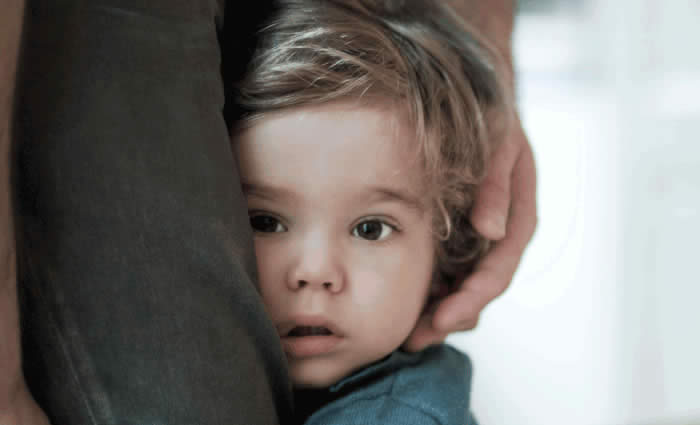What are the most common children lies & How to cope with that?
TYPES OF LIES
Imaginary Lies: Until the age of 3, children cannot perceive the differences between reality and imagination. Sometimes they can exaggerate in order to attract attention. This behaviour generally continues until the age of 5 but decreases over time.
Example: Your child says that their teddy bear is running and hiding behind the wardrobe. This should not be considered a lie; instead, it is simply their imagination and not something to worry about.
Need-Based Lies: Children between the ages of 3 and 5 may use emotional manipulation to get what they want. Emotional manipulation is often associated with lying.
For example, a child seeking attention may say, ‘I have a fever’, even if they’re perfectly well. This should not be considered a malicious lie; instead, parents should interpret this as a cry for attention. If parents can meet their child’s needs for attention, then their child will no longer need to lie.
Imitated Lies: Lately, we have posted the following content on our social media accounts:

Joseph Joubert's beautiful quote summarises the whole topic, but I want to add an example.
Example: Let’s say your child wants to go to the park. You tell them, ‘We have work’, but instead you go to the shopping centre. Your child will begin to think that it’s normal to lie according to their priorities. In these cases, parents should question their own behaviour, rather than their child’s behaviour.
Social Lie: Children who do not want to go to school, feel sleepy, or have different plans for the day may want to refuse their responsibilities for a short time by telling others that they are sick. Adults often do this as well.
Pathological Lies: These are lies told by children and adolescents with impulsive control disorders and are often told without any purpose or reason.
Example: A child who is constantly humiliated by their uncle tells an unintentional lie that the uncle is dead (even if he is alive) when their uncle is asked about in conversation. The emotion triggering this lie is that the child feels uncomfortable with the presence of their uncle.
These unintentional lies can also be caused by attention deficit and hyperactivity disorder. Hyperactive children often move and talk without thinking. Therefore, they can tell those lies without thinking about the consequences. It is necessary to seek help from specialised child psychiatrists when your child tells pathological lies.

Lies to Protect Oneself: Children lie when they’re afraid of the reaction of adults around them, especially if they’ve made a mistake. Unfortunately, this can turn into a defence mechanism for the child in the long-term.
Admirable Lies: Children may lie about their skills, qualifications, or previous successes in order to impress other people. One of the most obvious reasons for this is a lack of self-confidence. Children who see themselves as inadequate may prefer to lie about their achievements.
Routine Lies: This is when children can’t stop telling lies, even once they’ve reached an age where they can distinguish between reality and their own imagination.
Children who tell routine lies are selfish and want to protect their own interests. Unfortunately, it can often be a symptom of a personality disorder. In this case, we recommend you seek help from a psychiatry specialist.
HOW TO RESPOND LYING CHILDREN
Parents are often the reason why their child lies. Let’s see how you can help your child correct their behaviour and prevent lying in the future.
1. Do not Be Perfectionist: Your child may lie about their failures in order to impress you. If you are a perfectionist, then your child will also feel pressure to be perfect. You should make your child feel loved unconditionally (whether they’re successful or not) and avoid comparing them with others.
2. Do not Force and Be Threatening: If your child is hiding things from you, then they’re probably feeling threatened by you. If you stop being overly conservative, oppressive, and threatening, your child should stop lying. You should not punish them as a result of their negative behaviours but talk to them about how their positive behaviours will result in more gain. For example: Instead of saying, ‘I'll punish you if you come home late from school’, it is better to say ‘You make me very happy by being home on time every day.’
3. Be Interested Pay attention to your child. Children who do not have enough attention from their family are more likely to lie.
4. Increase your child’s self-confidence: Your child needs to use their mental skills effectively in order to be successful in life. They should feel a sense of accomplishment from discovering their own intelligence potential. In this way, inferiority complexes will not occur and your child will be able to express themselves comfortably in any environment. Therefore, your child will not need to lie to gain a false reputation.
Check out MentalUP’s attention and mind games developed by child development specialists, doctors specialised in pedagogy, game experts, and academics. MentalUP is a scientific and fun app that encourages children to discover their intelligence potential and develop their mental skills. MentalUP holds a pedagogical product certificate and has been proven to contribute to the school success of children.
As we mentioned earlier, children may lie because they have attention deficit and hyperactivity disorder. In order to prevent more lying, parents need to improve their child’s attention levels. MentalUP supports the attention development of children — download for FREE.
5. Do not ask your child to participate in your lies: Do not involve your child in your own lies. The simplest example: don’t order your child a hamburger if their father doesn’t allow it, and then ask your child to lie to their father if he asks. This may cause your child to think that it’s okay to lie in some situations.
6. Do not Interrogate your child: Do not question your child for hours when you catch them in a lie. Be a good listener, and then explain sincerely how this behaviour is not acceptable. If your child knows they will be interrogated even if they confess, they’re more likely to keep the lie going.
7. Do not Use Violence: Do not try to change your child's behaviours by shouting or beating. Violence is never the solution. Children who are exposed to physical harm will try to cover their mistakes with lies to protect themselves. Yet, it’s normal for all children to make mistakes.
8. Trust your child: One of the reasons that children lie is because their parents do not trust them. If parents always assume their child is lying, then the child will accept this behaviour as part of their character. Therefore, you should tell your children that you trust them and also make them feel your love.
9. Respect your child’s privacy: Your child will require more privacy as they enter adolescence. You should respect this, and avoid asking your child too many questions about their routine activities. For example, you do not have to ask why they are taking a shower. Generally, taking a shower is simply for cleaning.
10. Do not accuse your child: Don’t accuse your child with questions like, ‘Why is the glass broken?’ or ‘Why is the fridge door open?’. If the glass is broken, you can ask your child to help you clean it up. If the fridge door is open, you can ask your child to close the door. This creates a comfortable environment for your child to own up to their mistakes.
To sum up, children who lie have experienced negativity during their developmental process. Therefore, parental mistakes are among the reasons for lying. But do not forget: you can help your child stop lying. If you feel that the situation has escalated, don’t hesitate to seek support from child psychiatrists.






